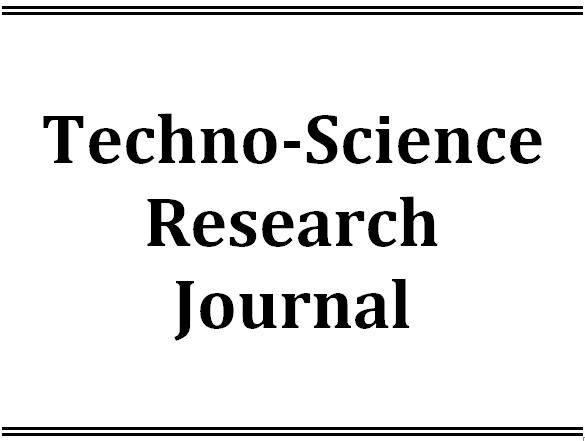Latest Issue
Empowering Education with Online Khmer Handwritten Text Recognition for Teaching and Learning Assistance
Published: August 30,2025Undergraduate Student Dropout Prediction with Class Balancing Techniques
Published: August 30,2025Status of Seawater Quality at Koh Rong Island, Sihanoukville, Cambodia
Published: August 30,2025Low-Complexity Detection of Primary Synchronization Signal for 5G New Radio Terrestrial Cellular System
Published: August 30,2025Word Spotting on Khmer Printed Documents
Published: August 30,2025Tuning Hyperparameters Learning Rate and Gamma in Gym Environment Inverted Pendulum
Published: August 30,2025Examining Passenger Loyalty in Phnom Penh Public Bus System: A Structural Equation Modelling Approach
Published: August 30,2025Prediction on Load model for future load profile of Electric Vehicle charging demand in Phnom Penh
Published: August 30,2025Economic Study on Integrating PV-DG with Grid-Tie: Case Study in Cambodia
Published: August 30,2025Using Cache to Optimize Question Wave Social Search Agents
-
1. Computer Science Department, Institute of Technology of Cambodia, BP 86, Bvd. Pochentong, Phnom Penh, Cambodia
Academic Editor:
Received: January 20,2024 / Revised: / Accepted: January 20,2024 / Available online: June 01,2013
This paper presents about our research in social search. Generally, the research in social search falls into two principal challenges. The first challenge is how to find more relevant answers to the question. The second one is how to increase speed in finding relevant answers. Recently, we had provided an algorithm called Question Waves (QW) to find more relevant answers compared to the baseline algorithmbreadth-first search(BFS). But, the search speed of the proposed algorithm still the subject to improve.In this paper, we introduce the agents’ ability of learning the answers from the interactions with other agents so that they can quickly answer the question of other agents. We model this learning process by implementing the concept of data caching as the short-term memory of each social search agent. The result improvement of the speediness and the reduction of the number of messages used to communicate between agents, after apply agent's short-term memory concept, demonstrates the usefulness of the proposed approach.

